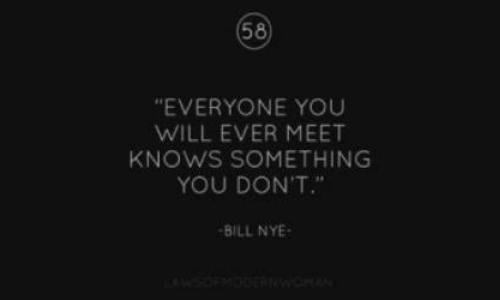
Co-op can be an amazing experience that helps you diversify your professional portfolio after graduation. Think about it, when in your life can you switch jobs as much as you want without any consequences? When I started applying for jobs during my first co-op search term, I was determined to gain experience in multiple sectors. To date, I have completed a work term at a non-profit, a private company, and in the public sector. All of these experiences have helped me shape my career goals and opened my eyes to a world of opportunity.
To help you expand your co-op horizons, here are five tips to help you achieve a diverse co-op experience:
1. Think About What You Want to Learn
Before applying to jobs, think about what you would like to learn by the end of your degree. Maybe you want to learn how to create a website, or write a project proposal and manage the project from start to finish? Consider all the possibilities, because they will help you shape your plan. If you lack a skill for a job you would like to apply for, don’t be afraid to take a course or find volunteer work where you can develop and practice that skill. Having a clear set of goals and vision of what you would like to learn will help you in your co-op job search and with creating on-the-job goals.
2. Check the Job Board Every Day and Apply to Everything That Interests You
Before I go any further, “apply to everything” does not literally mean apply to everything and forget the qualifications. As a rule of thumb, if you qualify for 70% of the listed qualifications on a job posting, there is no harm in applying for the position. If you think you can’t apply because you are an Arts major and the position is for a Business student, think again! I have completed a Business Co-op work term as an Arts student. Remember, it’s about your qualifications and experience, not your degree! Don't just limit yourself to jobs within your faculty. Look at all the jobs posted on the Job Board (MyExperience) and try to do this daily. Also, don't forget that it is okay to start small. My first work term was at a non-profit and I worked in a small office. I learned a lot from this experience because there was always room to take initiative and try out new responsibilities. Your first work term doesn’t have to be with a large company or organization. Aim high, but don’t forget that there is much to be learned at all levels.
3. Transferrable Skills are Your Best Friend!
If you have only volunteered in the past, or simply worked part-time at the mall, it is okay! Skills are transferrable, and even though you may think you don't have a skill an employer is looking for, a task you performed may be similar. Don't forget to talk with your Co-op Coordinator because they can help you market your transferable skills. When I was applying for my second co-op position, I wanted to work at a private company, but I only had volunteer and non-profit experience. During my non-profit work experience, I was in charge of finding sponsors and donors for the annual fundraiser. This translated well into sales and communications, which landed me my second work term at a private company coordinating inbound sales. The outreach I conducted, and the amount I fundraised were clear signifiers of my ability to communicate and build networks, which was a key qualification for my private sector position.
4. Market YOUR Difference
Oftentimes, people assume a student does not meet a certain qualifications because they are not studying a specific subject in school. This is something that I have encountered numerous times, but, as I mentioned in tip #2, your major does not define you. In the right environment, your difference can be a strength, especially since it can bring a new perspective into the organization. When I set out to obtain experience in the public sector, I showcased my experience putting together a sales and marketing plan on my resume to show the employer how I could develop a process. I explained that I had created tools, such as tables, to help sales representatives decide on a follow-up method. I also included my ability to think about multiple consequences and perspectives, as this was something I had done many times in school as a Sociology student. By leveraging my academic and previous work experience and how these would allow me to excel in the job, I was able to acquire a position working in the public sector for my third co-op.
5. On the Job – Take Initiative
I cannot emphasize how important initiative is. I have heard many people say that the work done in co-op isn't challenging enough, or that you'll be stuck doing the same thing over and over again. It's true that you can be in those situations, but if you don't show initiative, no one is going to come to you. You have to go to your supervisor and express your interests. If you don't have a skill and want to gain it, ask to job shadow someone who has the particular skill you would like to gain. Look for areas the organization can improve on and bring them up during a staff meeting by proposing a way to improve it. For example, I was able to gain social media skills during my private sector experience because I saw that there was a need for managing social media accounts at the organization and made it happen.On the other hand, don't be discouraged if your idea is rejected as you have already taken the first step towards taking initiative.
Remember, it's not all about the job description. When you enter a co-op work term, employers know that you are there to learn. They want you to learn and are invested in helping you acquire skills. Although the tasks outlined in the job description are important, don't hesitate to ask for new responsibilities. Keep an ongoing conversation with your supervisor and let them know what your learning objectives/goals are. This will help you gain valuable feedback on your performance and create a relationship where you can talk freely about learning opportunities.
Anyone can apply to a job and hope to get hired, but in order for you to make the most of your co-op and diversify your experiences, it is up to you to go the extra mile. Make a plan, check the Job Board often, market your skills, talk with your coordinators and take initiative! Co-op is what you make it, and you need to put effort in to make it a rewarding experience.
Beyond the Blog
-
Visit the FASS co-op page to learn more!














